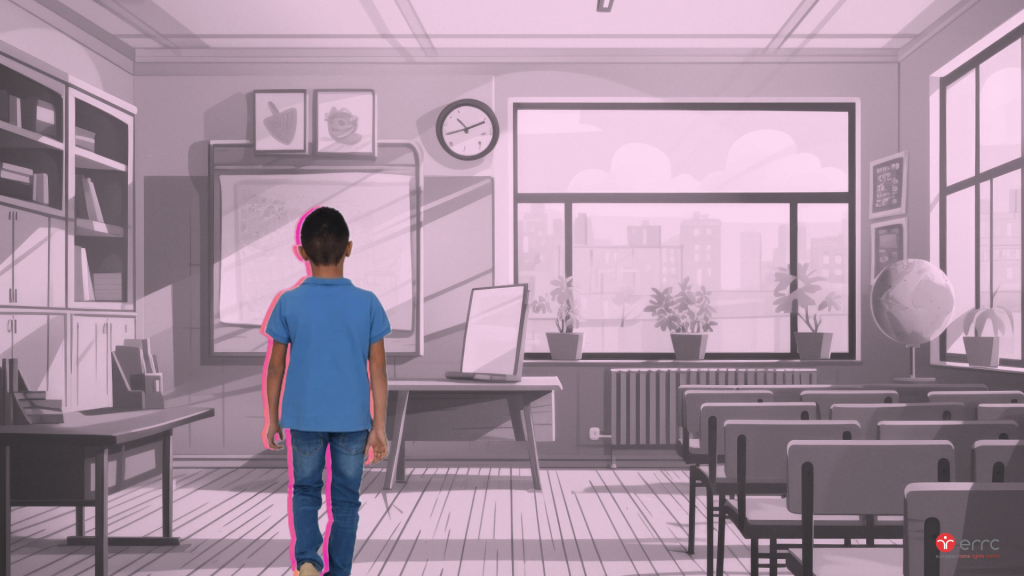Combating Classroom Segregation: The Fight for Equal Education Opportunities for Romani Children in Reggio Calabria, Italy
11 September 2024

By Judit Ignacz
Picture Lucia; a bright, curious Romani kindergarten student eager to learn, make friends, and be a part of a community. But the school she goes to deprives her of the chance to interact with non-Romani children, of the chance to learn from each other and grow together. This is Lucia's and many Romani children's everyday reality in Reggio Calabria, Italy.
Children entering a classroom where 75% to 80% of their peers share their ethnic background may sound like a supportive environment for some, but what if it is not by their choice? What if it is a product of a system segregating them from the rest of the students based on ethnicity? This is the harsh reality faced by Romani students in Reggio Calabria, where two classes are predominantly, almost exclusively, composed of Romani children.
On 8 March 2024, the European Roma Rights Centre, jointly with the Un Mondo di Mondi Association, submitted a complaint to the school and prefecture. The current student population of the school is 813, with 115 Romani. Despite Romani students constituting just 14.15% of the entire school population, these two classes bear a disproportionate concentration of Romani students: a kindergarten class at the Salice School in Arghillà South, which comprises 20 students, 16 of them being Roma (80%), and the third grade of a primary school at the Salice School in Rosalì, with eight students, six of whom are Roma (75%). Although these classes are not solely composed of Romani students, they function just the same as segregated classes, impeding their inclusion and socialization. This mainly affects Romani students but equally impacts non-Romani students deprived of a diverse learning environment.
These classes have inadvertently transformed into "ghetto" classes, a term that harshly contrasts with the inclusive principles of Italian education. Indeed, the composition of these two classes contradicts the inclusion objectives established by law number 517 on August 4, 1977. This law abolished segregated classes, a legacy of the fascist period, and created an inclusive school system. The new system welcomed students of various social classes, ethnicities, and nationalities into heterogeneous classes without division or dominance. The most recent national legislation, Article 45, Section 3, Presidential Decree n. 394/99, and Ministerial Circular no. 2 of 01.08.2010 called out segregation to avoid forming classes with a prevalent presence of students from other countries. Considering the situation in the Arghillà district, this rule should also be applied to Romani students, even if they are Italian citizens.
Therefore, following both laws, the ERRC’s complaint argues it is necessary and urgent to change the composition of these classes, which have persisted for several years in the school. As a first step, the “Radice Alighieri” school should regulate class composition by ensuring that the number of Romani pupils in each class does not exceed their overall percentage corresponding to their population presence, which is 15%. This means there should be a maximum of 3 Romani pupils in each class. This will prevent classes from being dominated by marginalized or immigrant students. Moreover, the municipality should address segregation by ensuring a free bus service, so Romani students can reach different schools. The local Un Mondo di Mondi Association should inform local Romani families about these changes and promote diversity in school enrolment.
Discriminatory practices that have been in place for years must end for Lucia and all Romani students in Reggio Calabria. It is high time to ensure that every child, regardless of ethnic background, can learn in a diverse and inclusive environment. Every child, including Lucia, has the right to a normal, equal education.
 |




